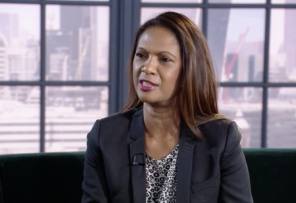

The call for a snap general election has prompted a huge shift in the markets, with the trends seen since last year's Brexit vote now embarking on a U-turn.
Prime minister Theresa May revealed today (18 April) that a UK general election is now on the cards, with a proposed date set for 8 June.
The immediate market reaction has been to move in directions that reverse the trends since the European Union referendum last year, with equities falling and sterling rising.
The pound dipped to $1.25 in anticipation of the announcement, but has subsequently surged to $1.28 in light of the election news.
Scott Jamieson, who heads up the multi-asset team at Kames Capital, pointed out sterling has already retraced the second leg down that occurred last October when Mrs May said she was prepared for a hard Brexit.
“In the short term a further rally to levels prior to the referendum looks highly unlikely, but the scale of the market ‘short’ in sterling is significant,” he said, suggesting sterling could rise further.
Colin Morton, lead manager of the £374m Franklin UK Equity Income fund, said: “There are already a few signs that the anticipation of a more stable Brexit negotiation could be a game changer for currency.”
However, he stressed that it is still early days, adding: “We will no doubt see twists along the way, but the prime minister has clearly decided that the prize of long term stability outweighs any potential short-term risk.”
Laith Khalaf, senior analyst at FTSE 100 wealth manager Hargreaves Lansdown, said the pound has been the big winner as currency markets bet on the current government winning a greater majority.
“Markets can get a case of the jitters in the run up to elections, but this one may be different seeing as it comes in the wake of the Brexit vote,” he said.
Yet Mr Khalaf said a snap election opens the door to market volatility in the coming months, but he stressed that investors should not to let their investment decisions be dictated by swaying polls.
“The household saving ratio is currently at its lowest level since the 1960s, and the big risk facing investors is that they let the election disrupt their financial plans,” he said.
“In the short term, market sentiment can be driven by political events, but investors should look beyond any noise as politicians hit the campaign trail, and keep focused on their own long-term savings goals.”
The FTSE 100 shot down to 7,178 today (18 April) from 7,327, as the internationally-focused companies that make up the index were hit by the climbing value of the pound.
However, Henderson’s UK equity manager, Neil Hermon, said the election would act as a positive move for UK stocks, particularly for domestic mid-caps which benefit from a stronger sterling and a stable political environment.
Justin Urquhart Stewart, co-founder of Seven Investment Management, questioned how many investment managers have learnt from last year’s surprise votes in both the EU referendum and the US election.
“The consensus view has been for a weaker pound, which would benefit the overseas heavy FTSE 100 as we headed towards a harder and harsher Brexit.
“However, just when everyone is facing one way (the consensus way), then it is usually the time to look the other way and manage the risks of exactly the opposite.”
Others warned that the path between here and 8 June is unlikely to be a smooth one, as the prospect of a general election creates further uncertainty.
Edward Park, director of the investment committee at Brooks Macdonald Asset Management, said this is evident when looking at UK gilt yields, which have continued their downtrend today to reach new 2017 lows.
“The government has consistently pushed back against revealing too much about its negotiating position with the EU in advance and, as a result, its plans are largely unknown at present,” he said.
“If the government’s manifesto seeks to dominate the middle ground and leads the market to believe it is seeking a ‘soft’ Brexit, this may give further buoyancy to sterling.”
Ultimately, Mr Park said the election could be significantly positive for the UK, as the victorious party could hold greater authority when implementing their policies.
katherine.denham@ft.com



